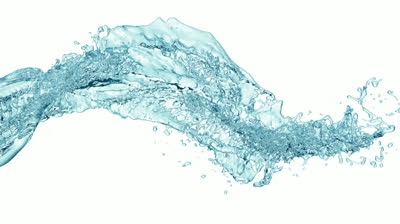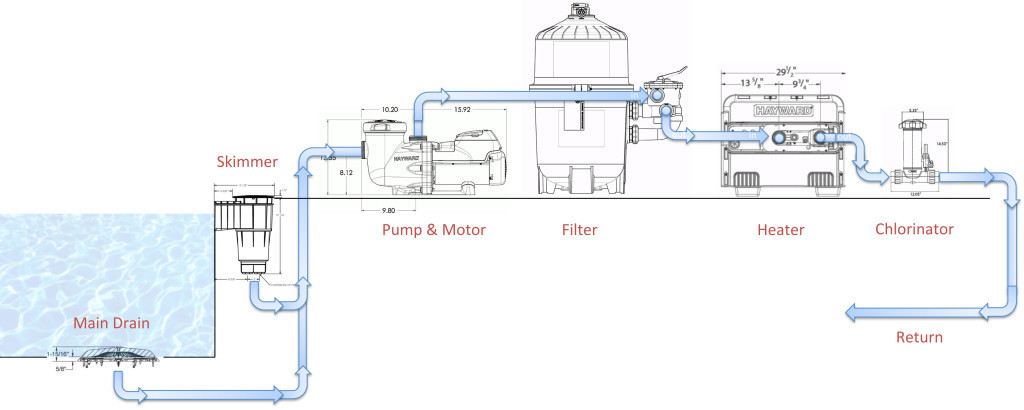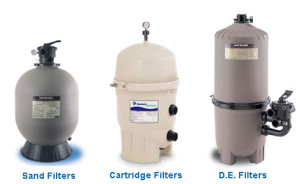Pool heat pumps are generally quite reliable when it comes to heating up your pool. They don’t require constant attention, yet manage to provide countless hours of soothing warm water to enjoy. Overall, you can count on a heat pump to do its job without much intervention, but that doesn’t eliminate the need for proper maintenance and annual servicing.
In order maximize performance and extend the life of your heat pump, it’s especially important to make sure that all parts are in good working condition. Certain parts within a heat pump play a role that directly affects multiple components of the unit simultaneously. As a matter of fact, one of the most easily overlooked yet significant factors in heat pump maintenance, is proper water flow.
Why Proper Water Flow Is So Important
Water flow directly correlates to the performance of a unit, but in order to fully understand this concept, we must review the role that water flow plays within the heating process. Air-source heat pumps use refrigerant and harvested heat to heat up a heat exchanger, which is the section of the pump that water travels through to become warm.
During this segment of the process, the refrigerant is converted into a gas and becomes highly pressurized in order to increase in temperature. The hot gas refrigerant is pumped through titanium tubing that wraps throughout the center of the heat exchanger. As water is pumped through the heat exchanger it increases in temperature and simultaneously cools down the titanium tubing (housing the hot gas).
This cooling process is essential in regulating refrigerant pressure. If there isn’t enough water flowing through the heat exchanger, the refrigerant cannot cool and disperse heat properly. When the refrigerant isn’t properly cooled, it maintains a high pressure and is recirculated through the unit. A high refrigerant pressure level forces the compressor (the component responsible for pressurizing and heating up refrigerant gas) to work harder and use up more energy. Aside from impacts to energy efficiency, excessively high refrigerant pressure can drastically excel the rate of mechanical deterioration in the unit – spelling out costly repairs. Proper water flow can prevent the issue entirely.
Circulation And Flow Rate
In order to ensure proper water flow to your heat pump, it’s important to understand the significance of circulation. Circulation primarily involves water flow in respect to the pool system as a whole, which mainly includes the pool pump, filter, and heat pump.
Flow rate is the term used to measure how well water circulates through the system, and it’s affected by a couple of factors. Thankfully, there are a few easy steps you can take to ensure both adequate circulation and proper water flow to your unit.
Optimizing Water Flow
Filter
A filter serves the purpose of blocking impurities and debris from entering the water flow system. When a filter becomes too crowded and dirty, water flow is the first thing to be affected. This is why it’s recommended to regularly clean out your filter – doing so reduces the risk of circulation line clogs and flow restrictions.
Pump Basket
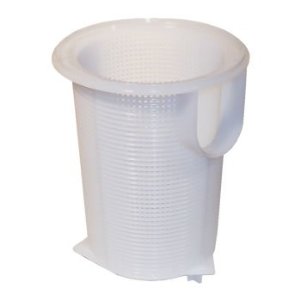

 Just like with the filter, it’s best to keep your pump basket clean and free of any debris. Coupled with a clean filter, a clean pump basket helps to keep the circulation system uninterrupted.
Just like with the filter, it’s best to keep your pump basket clean and free of any debris. Coupled with a clean filter, a clean pump basket helps to keep the circulation system uninterrupted.
Water Pressure Switch
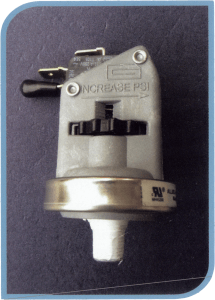

 The water pressure switch is the part within a pool heat pump that monitors proper water flow and PSI. It essentially serves as a safety mechanism to prevent damage when water pressure is too low. Switches are typically factory calibrated to the specific requirements of the unit and don’t really require user adjustment.
The water pressure switch is the part within a pool heat pump that monitors proper water flow and PSI. It essentially serves as a safety mechanism to prevent damage when water pressure is too low. Switches are typically factory calibrated to the specific requirements of the unit and don’t really require user adjustment.
That being said, if and when this particular part isn’t working properly (wear and tear or electrical damage), unit water flow levels can be completely skewed. In that event, the compressor becomes instantly more susceptible to damage (low water flows leads to abnormally high refrigerant pressure). Thankfully, the water pressure switch is one of the many parts inspected during a professional service call.
Valves
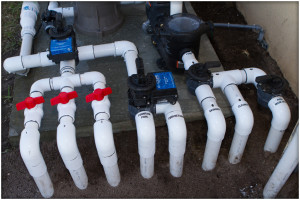

 Although one of the most intuitively simple-to-control aspects of a pool system, it’s easy to leave a valve or two partially close. Check to make sure that all active valves are fully open – this will ensure that water flow is consistent throughout the system.
Although one of the most intuitively simple-to-control aspects of a pool system, it’s easy to leave a valve or two partially close. Check to make sure that all active valves are fully open – this will ensure that water flow is consistent throughout the system.
The Big Picture
Hopefully by now, we’ve helped you to understand the significance of proper water flow within your pool system. As a pool owner, one of your best tools in preventing costly repairs and damage to your system is proper maintenance, for both your pool system and heat pump. As always, be sure to seek out professional help when servicing your pool heat pump. Although sometimes time-consuming, proper maintenance will save you plenty of frustration and money in the long run.
Have any more tips for improving and maintaining water flow? Feel free to share them in the comments below!


